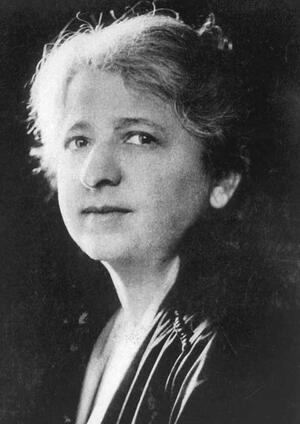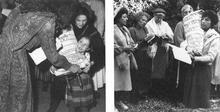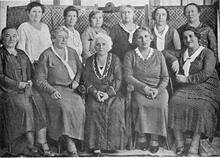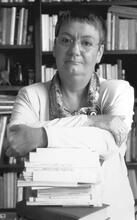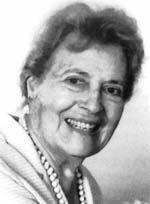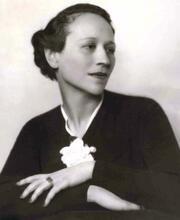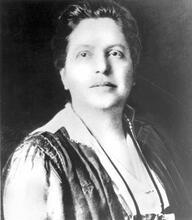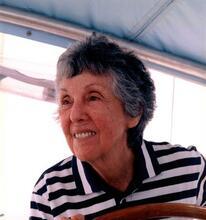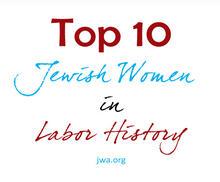Mary Fels
Mary Fels used her wealth and her talents to further the Zionist cause, arguing passionately for a Jewish state and helping create both settlements and industry in Israel. Both Fels and her husband, a successful soap manufacturer, felt their wealth gave them a responsibility to reform capitalism and use their money for philanthropy. She served as editor of The Public: A Journal of Democracy from 1917 to 1919, writing editorials supporting labor rights, women’s suffrage, and civil rights, as well as her belief that Palestine should be given to the Jews. She established the Joseph Fels Foundation to educate both Jews and non-Jews on the history of Israel and the importance of a Jewish homeland. In the 1920s she served as vice president of B’nai Benjamin.
Early Life and Family
Mary Fels, an ardent and philanthropic Zionist, promoted Jewish settlement in Palestine and Israel throughout her life. Born March 10, 1863, in Sembach, Bavaria, she was the daughter of Elias and Fannie (Rothschild) Fels. Fels immigrated to the United States with her parents in 1869 and grew up in Iowa, where her father made his living as a purveyor of dry goods. She graduated from Keokuk High School and then spent one year at St. Mary’s Academy in Notre Dame, Indiana. She continued her formal education with one year at the University of Pennsylvania in Philadelphia and, later, with special courses at Bedford College in London.
Marriage
It was while Mary Fels was in Philadelphia that she met Joseph Fels, a distant cousin. She was charmed by him, and they married on November 16, 1881. The couple maintained residences in Philadelphia and in London, where Joseph Fels and his brothers operated an extremely successful soap manufacturing company. The couple’s only child, Irving S. Fels, died while still an infant.
Joseph Fels, much to the consternation of his brothers and partners, was extraordinarily philanthropist. He and his wife believed that the capitalist system that had made them rich was flawed and unjust and that they could justify their wealth only by using it to reform capitalism. When Joseph Fels died in 1914, Mary Fels moved to New York City and became extremely active in a variety of causes, both charitable and political. She wrote Joseph Fels: His Life-Work (1916), which, with an understandable bias, charts her husband’s life, extols his virtues, and dwells on his many accomplishments and brilliance.
Supporting Jewish Settlement in Palestine
During World War I, Fels served as the main editor of The Public: A Journal of Democracy. During her tenure at The Public (1917–1919), she wrote a number of editorials that expressed her political opinions. Fels supported President Woodrow Wilson, encouraged labor unions to assert themselves, bemoaned the treatment of “our colored sisters,” and chided the “stupid” and “asinine Republicans” who sought to deny the vote to women. After the British capture of Palestine, she used her editorial position to write about the need to establish a Jewish presence in the land based on what she called “Mosaic principles”—ethical and cultural standards of Judaism.
Mary Fels inherited her husband’s interest in the increasingly profitable family business and used both her fortune and time to support a number of causes, Jewish settlement in Palestine among them. After the war, and after resigning from her editorial post, she traveled to Palestine several times to promote Jewish settlement. Joseph Fels, too, had supported the need for a permanent Jewish settlement, and, as a member of the Jewish Territorial Organization, he had traveled to Mexico in 1907 to investigate the possibility of settling Jews there. Mary Fels, however, was convinced by her repeated visits that the history of the Jews in Palestine demanded that the Jews return to their ancient homeland. Their physical return would not suffice. She believed that the “Jewish problem” would be solved only when Judaism’s message of social justice was spread through the Jewish and non-Jewish world. To this end, Mary Fels established the Joseph Fels Foundation, which promoted “the enlightenment of Jews and Gentiles in Israel’s history and mission, and for the non-political settlement of Palestine.” She also used the foundation to continue the work her husband had begun in the areas of land and tax reform. Together, they had established the Joseph Fels International Commission, which sought to promote the single land tax as well as the revitalization of Jewish life in Palestine. Fels dissolved this commission in 1916 and handpicked individuals from the United States, England, and Palestine to carry out a broader agenda.
Later Life and Legacy
Joseph Fels had been a fanatical supporter of the single tax, as promoted by economic philosopher Henry George. Mary Fels had been convinced by her husband’s fervor and worked to see that land improved by public works was taxed accordingly. There would be no landed aristocracy in the United States or Palestine. She continued to oversee single-tax collective agricultural settlements at Hollesley Bay and Essex, in England, as well as in Mobile Bay, Alabama, and Arden, Delaware.
Mary Fels approached the question of people’s relation to the land through her ongoing commitment to the Vacant Lot Cultivation Society, which promoted the establishment of school gardens. In the mid-1920s, she was the vice president of B’nai Benjamin, an organization of Jewish farmers in Palestine. She brought a similar view of the redemptive value of hard work and attachment to the land to her work in the prison reform movement.
Mary Fels died in New York City on May 16, 1953, at age ninety. She had donated millions of dollars to support Jewish settlement and development in Palestine and Israel. More notable than her large financial contributions was her tireless work in support of her Zionist principles. This was not the only cause to which she devoted her time, money, and effort. Fels fought for woman suffrage, prison reform, and, in her husband’s honor, the single tax. In her book Toward the Light (1929), Fels’s commitment to God and justice are reiterated to the point of redundancy. Her sincerity in this, as in all that she did on behalf of Jews and others, is always clear: “Whatever may or may not come this noble, fervid spirit will not, cannot, be undone.”
Selected Works by Mary Fels
Joseph Fels: His Life-Work (1916).
The Public: A Journal of Democracy, vols. 20–22, coeditor (1917–1919).
Toward the Light (1929).
AJYB 24:137, 55:455.
Biographical Cyclopaedia of American Women. Vol. 1. Edited by Mabel Ward Cameron (1924).
EJ, s.v. “Fels”; Howe, Frederic C. “Personals.” The Survey 31 (March 28, 1914): 812–813.
“Mrs. Joseph Fels Dead at Age of 90.” NYTimes, May 17, 1953, 88:5.
National Cyclopaedia of American Biography. Vol. A (1930).
UJE.
Who’s Who in America. Vol. 3 (1960): 275.
WWIAJ (1926, 1928); WWWIA 1, 3.
Zangwill, Israel. “Joseph Fels.” The Fortnightly Review 57 (1920): 922–928.

